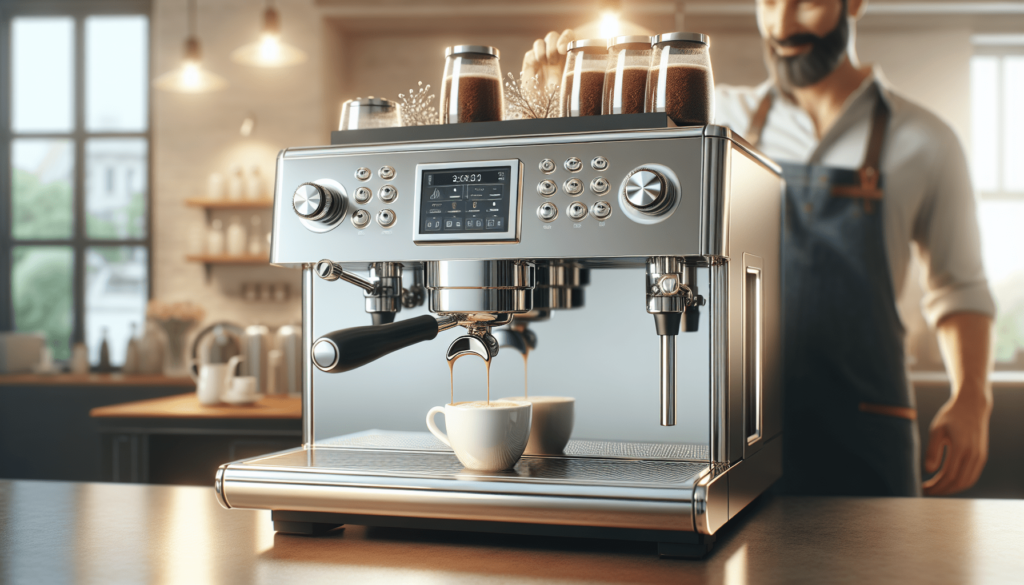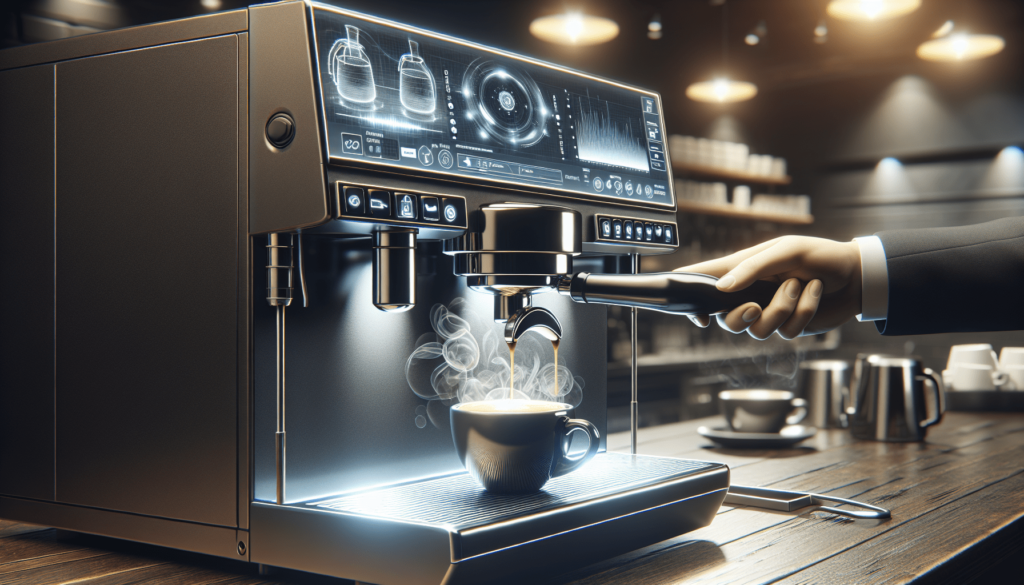How often do you find yourself wondering, “How long should a commercial coffee machine last?” Whether you own a bustling café, a cozy diner, or a trendy coffee shop, the longevity of your commercial coffee machine can significantly impact your business. Understanding the lifespan of these machines helps you plan for future investments, maintenance, and ensures you’re providing the best coffee experience for your customers.
Defining a Commercial Coffee Machine
Before diving into the lifespan details, it’s essential to understand what qualifies as a commercial coffee machine. These machines are designed specifically for high-volume usage typical in commercial settings like cafes, restaurants, and offices. They are built to produce a larger number of coffee servings compared to home coffee makers and often have features geared towards efficiency and consistency.
Types of Commercial Coffee Machines
There are several types of commercial coffee machines, each with their own expected lifespans and maintenance needs:
- Automatic Coffee Machines: These machines grind, brew, and often dispense coffee automatically with minimal manual input.
- Semi-Automatic Espresso Machines: While these require more manual interaction, they offer greater control over the brewing process.
- Super-Automatic Espresso Machines: These combine automation with advanced features like milk frothing and drink customization.
- Batch Brewers: Typically used for making large quantities of coffee quickly, perfect for busy environments.
Comparing Different Machines
| Type of Machine | Average Lifespan | Common Maintenance Needs |
|---|---|---|
| Automatic Coffee Machines | 5-10 years | Regular descaling, cleaning of grinders and brew groups, periodic technician checks |
| Semi-Automatic Espresso | 7-12 years | Manual descaling, group head cleaning, steam wand maintenance |
| Super-Automatic Espresso | 5-8 years | Frequent cleaning of milk frothers, grinder maintenance, electronic system checks |
| Batch Brewers | 5-10 years | Descaling, filter replacement, cleaning coffee pots and baskets |
Factors Affecting Lifespan of Commercial Coffee Machines
Several factors determine how long your commercial coffee machine will last. Understanding these factors can help you maximize the lifespan of your equipment and ensure it remains in optimal working condition.
Quality of the Machine
Investing in a high-quality machine from a reputable brand often translates to a longer lifespan. Higher-end machines are designed with durable components that withstand the rigors of daily commercial use.
Frequency of Use
How often you use your machine directly impacts its longevity. A machine brewing hundreds of cups daily will experience more wear and tear compared to one used less frequently.
Maintenance and Care
Regular maintenance is crucial in extending the life of your coffee machine. This includes routine cleaning, descaling to prevent mineral build-up, and replacing worn-out parts. Neglecting these tasks can lead to early machine failure.
Water Quality
The water you use has a significant impact on your coffee machine. Hard water can cause limescale build-up, leading to blockages and reduced efficiency. Using filtered or softened water can help mitigate this issue.

Maintenance Tips for Longevity
To ensure your commercial coffee machine serves you well for many years, regular maintenance is key. Here are some maintenance tips specific to different types of machines:
For Automatic Coffee Machines
- Daily Cleaning: Clean the drip tray, coffee grounds container, and brew group.
- Weekly Tasks: Descale the machine, clean the milk system (if applicable), and check for any visible wear.
- Monthly Maintenance: Deep clean the grinder, replace water filters, and run a full system clean.
For Semi-Automatic Espresso Machines
- Daily Tasks: Wipe down the machine, purge steam wands, and clean the group head after each use.
- Weekly Maintenance: Backflush the machine with a cleaning solution, clean the portafilters and baskets.
- Monthly Checks: Descale the machine, inspect the gaskets and seals, and replace if necessary.
For Super-Automatic Espresso Machines
- Daily Tasks: Clean milk frothers, empty the drip tray, and clean the coffee ground container.
- Weekly Maintenance: Descale the machine, clean the brewing unit, and inspect for any signs of wear.
- Monthly Checks: Run a full maintenance cycle including deep cleaning of all components.
For Batch Brewers
- Daily Cleaning: Clean the pots, filters, and ensure the spray head is clear.
- Weekly Maintenance: Descale, check for any build-up in the water lines, clean the brew basket thoroughly.
- Monthly Checks: Inspect the heating elements, replace water filters, and ensure all electrical components are functioning properly.
Signs Your Coffee Machine Needs Replacing
No matter how well you maintain your coffee machine, there will come a time when it needs replacing. So how can you tell when it’s time to say goodbye?
Decreased Performance
If your machine is taking longer to brew or the coffee quality has noticeably declined, it may be time to consider a replacement. Such issues often indicate that internal components are worn out.
Frequent Breakdowns
Are you calling the technician more often than usual? Frequent breakdowns mean the machine’s reliability is compromised. In some cases, repairs might cost you more in the long run compared to investing in a new machine.
Outdated Technology
Technology evolves rapidly, and an older coffee machine might lack the features and efficiency of newer models. Upgrading can lead to better performance, energy efficiency, and improved customer satisfaction.

Cost vs. Value: Is It Worth Repairing or Replacing?
Deciding whether to repair or replace a commercial coffee machine can be challenging. Here are some factors to consider:
Repair Costs
If the repair cost is more than half the price of a new machine, it might be more cost-effective to invest in a replacement. Frequent repairs also add up over time, making a new purchase more financially sensible.
Machine Age
Consider how long you’ve had the machine. If it’s nearing the average lifespan and requires several major repairs, replacing it could save you from future headaches.
Business Needs
Take into account your current and future business needs. A growing customer base might require a higher-capacity or more efficient machine, making an upgrade beneficial for your long-term goals.
Environmental Impact
While repairing extends the life of existing equipment and reduces waste, newer machines are often more energy-efficient. Balancing these factors can help you make a decision that aligns with both business and environmental considerations.
Choosing a New Commercial Coffee Machine
When the time comes to purchase a new commercial coffee machine, there are several factors to consider to ensure you’re making the best investment for your business.
Assess Your Needs
Determine the type of machine that best suits your business based on your volume needs, space, and desired features. For instance, a busy café might benefit from a high-capacity automatic machine, while a specialty coffee shop may prefer the control offered by a semi-automatic espresso machine.
Budget Considerations
While it might be tempting to go for the cheapest option, investing in a high-quality machine can save you money in the long run through reduced maintenance costs and increased longevity. Balance your budget with features and durability to find the best fit.
Brand and Warranty
Choose reputable brands known for their quality and customer support. Look for warranties that cover significant components for an extended period, providing peace of mind for your investment.
Energy Efficiency
Newer models often come with improved energy efficiency. These machines not only reduce your environmental footprint but also lower utility bills, which can add up to substantial savings over time.
Features and Usability
Consider features that make operations smoother and coffee brewing more consistent. These might include programmable settings, advanced milk frothing systems, or self-cleaning functions. User-friendly interfaces can also enhance staff efficiency and customer satisfaction.
Case Studies and Real-Life Examples
To provide a clearer picture, let’s look at some real-life examples.
Example 1: High-Volume Café
A bustling café in the heart of the city has been using a semi-automatic espresso machine for eight years. Due to regular maintenance, the machine has functioned well but recently started showing signs of wear. After evaluating repair costs versus the cost of a new machine, the owners decided to upgrade to a super-automatic model to keep pace with growing customer demand and improve efficiency.
Example 2: Small Office
In a small office environment, an automatic coffee machine has been in use for about six years. While the machine performed adequately, it recently started to malfunction more frequently. The office opted to repair the machine as the estimated repair costs were low compared to purchasing a new one. This decision was also in line with their sustainability goals.
Example 3: Specialty Coffee Shop
A specialty coffee shop invested in multiple high-end semi-automatic espresso machines to deliver artisanal coffee experiences. These machines have been around for over ten years, thanks to meticulous maintenance and occasional upgrades. Recently, the shop decided to update one of their older machines with a newer model featuring better energy efficiency and more advanced features to maintain their competitive edge.
Final Thoughts
Understanding how long a commercial coffee machine should last and the factors influencing its lifespan helps you make informed decisions about maintenance, repairs, and replacements. Keep your machine in good condition through regular maintenance and be proactive when signs of wear and tear appear. By doing so, you’ll ensure that your business continues to serve excellent coffee, making it a favorite spot for your customers.
In summary, a well-maintained commercial coffee machine can serve you for many years, significantly improving your return on investment. Pay attention to quality, maintenance routines, and business needs when deciding to repair or purchase a new machine. Remember, an efficient, high-performing coffee machine is crucial for your business’s success and customer satisfaction.
